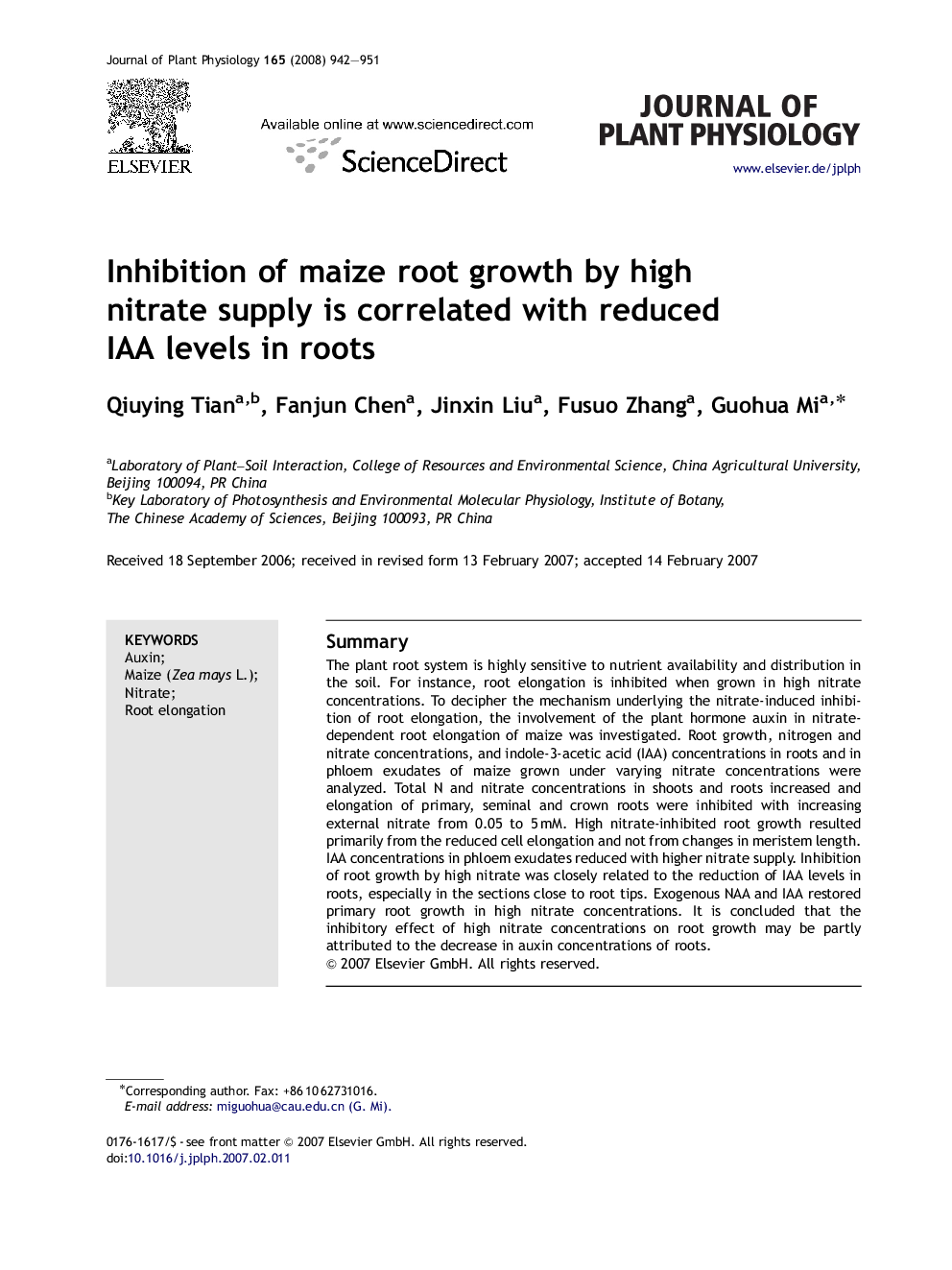| Article ID | Journal | Published Year | Pages | File Type |
|---|---|---|---|---|
| 2057978 | Journal of Plant Physiology | 2008 | 10 Pages |
SummaryThe plant root system is highly sensitive to nutrient availability and distribution in the soil. For instance, root elongation is inhibited when grown in high nitrate concentrations. To decipher the mechanism underlying the nitrate-induced inhibition of root elongation, the involvement of the plant hormone auxin in nitrate-dependent root elongation of maize was investigated. Root growth, nitrogen and nitrate concentrations, and indole-3-acetic acid (IAA) concentrations in roots and in phloem exudates of maize grown under varying nitrate concentrations were analyzed. Total N and nitrate concentrations in shoots and roots increased and elongation of primary, seminal and crown roots were inhibited with increasing external nitrate from 0.05 to 5 mM. High nitrate-inhibited root growth resulted primarily from the reduced cell elongation and not from changes in meristem length. IAA concentrations in phloem exudates reduced with higher nitrate supply. Inhibition of root growth by high nitrate was closely related to the reduction of IAA levels in roots, especially in the sections close to root tips. Exogenous NAA and IAA restored primary root growth in high nitrate concentrations. It is concluded that the inhibitory effect of high nitrate concentrations on root growth may be partly attributed to the decrease in auxin concentrations of roots.
